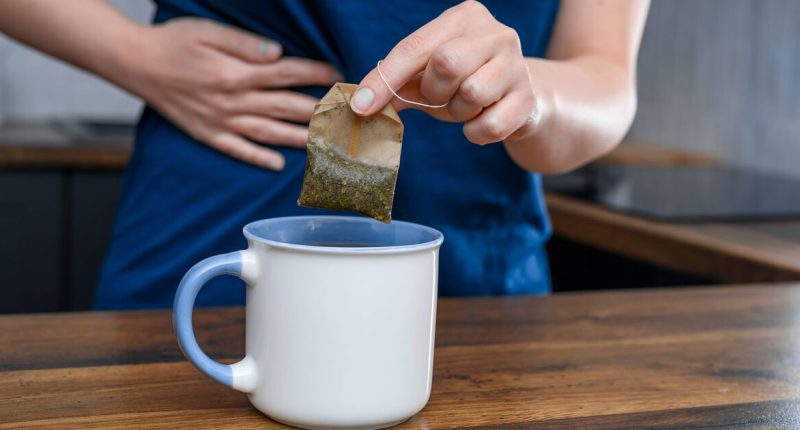Share this @internewscast.com
A public health nutritionist has drawn attention to new research indicating that two types of tea could assist women experiencing symptoms of polycystic ovary syndrome (PCOS), in addition to other health benefits.
A fresh scientific review – titled A Narrative Review on the Mechanistic Actions and Potential Health Benefits of Peppermint and Spearmint Teas – from the Tea Advisory Panel, presents compelling evidence that spearmint tea may help rebalance female hormones.
Dr Emma Derbyshire, co-author of the review from the Tea Advisory Panel, said: “Spearmint tea is made from the leaves of the Mentha spicata plant, which is a form of mint. It has a refreshing, mildly sweet flavour and is commonly consumed for its soothing properties.
“The primary active compounds in spearmint tea are menthol, flavonoids – such as luteolin – and rosmarinic acid. These compounds are known for their polyphenol benefits, including helping to fight everyday nasties that could potentially affect our health and wellness, alongside anti-inflammatory and antimicrobial properties.
“Additionally, spearmint contains other compounds that contribute to its unique aroma and flavour. These compounds can also provide benefits to digestive health, help relieve nausea, reduce stress and improve overall wellbeing.
“Spearmint tea is often linked to the regulation of facial hair growth – sometimes referred to as hirsutism – particularly in women. This connection predominantly arises from its impact on hormone levels.
“In particular, spearmint tea has been shown to have anti-androgenic effects, meaning it can reduce the levels of androgens – male hormones like testosterone – in the body, sometimes referred to as antiandrogenic properties.
“High levels of androgens can lead to symptoms such as excessive facial hair growth, a condition known as hirsutism, which is common in women with polycystic ovary syndrome (PCOS). Several studies have explored spearmint’s potential to reduce testosterone levels, which may explain its effect on facial hair growth.”
Dr Derbyshire highlighted a particular study: “The researchers conducted a five-day trial on females with PCOS and women with excess facial hair with an unknown cause. The women were asked to drink one 250ml cup of spearmint tea twice a day during the follicular stage, or the first half, of their menstrual cycle.
“After five days, the researchers observed significant reductions in testosterone levels in the women. By lowering testosterone, spearmint tea can reduce the stimulation of hair follicles, leading to a decrease in unwanted facial hair growth.”
What teas could mean for natural hormone support
Dr Derbyshire explained: “Spearmint tea’s ability to affect hormones, especially testosterone, has made it a popular natural ‘go-to’ help for managing conditions like PCOS, which often causes hormonal imbalances. The anti-androgenic effects of spearmint are attributed to the menthol and flavonoid compounds present in the plant.”
She continued: “Menthol, in particular, has been found to inhibit the production of testosterone, which is crucial for both male and female hormonal balance.”
The expert added: “By reducing testosterone levels, spearmint tea can promote a more balanced ratio of oestrogen and progesterone, which are important for regulating the menstrual cycle, fertility, and overall hormone health. For women with PCOS, spearmint tea may help improve symptoms like irregular periods, acne, and excessive facial hair, while also supporting better emotional well-being due to its calming properties.”
Dr Derbyshire summarised: “In summary, spearmint tea is not only a refreshing tea infusion but also a botanical herbal that helps with potential hormonal effects, particularly in reducing facial hair growth through its influence on testosterone levels.”
She revealed further benefits: “In addition, the latest research from my colleagues at TAP also found other benefits borne out of consuming one or two cups of peppermint and spearmint tea a day, including helping to support our brain health, heart health and digestive health. It may also help to reduce arthritic pain and improve sleep, so it really has potential as a simple health hack.”












